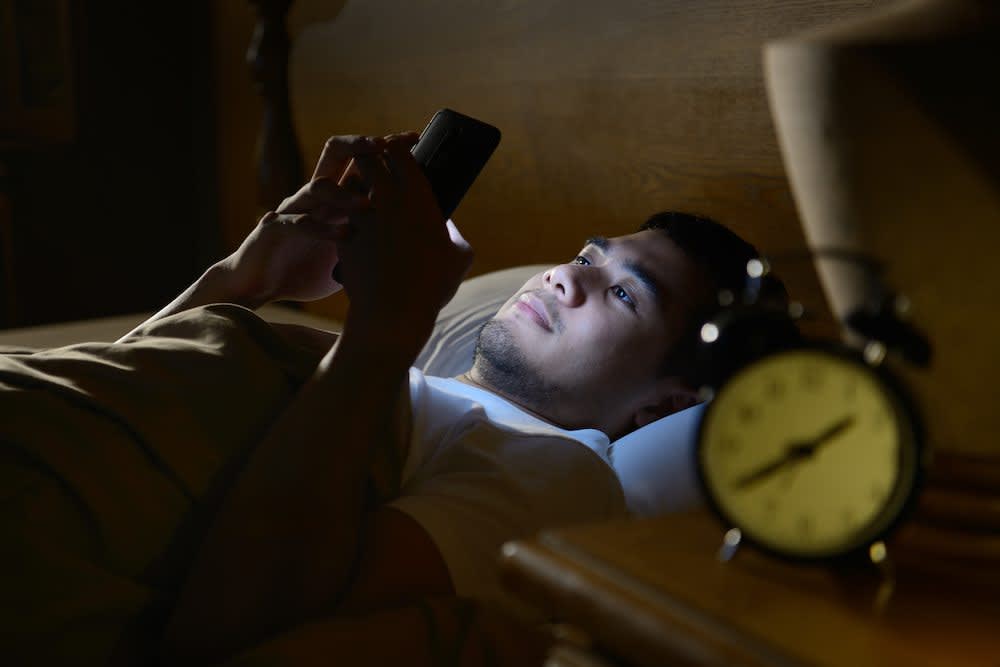If you have trouble getting enough rest at night or staying awake during the day, a sleep diary can provide useful insight into your sleep patterns. Tracking your sleep is an easy, affordable way to learn more about your health. A sleep diary can also help your health care provider develop a treatment plan for any sleep issues you have so you can get better rest.
Long-term sleep deprivation is associated with a variety of cognitive and physical problems, including diabetes and heart disease. Despite this, almost 30% of American adults report that they don’t get the recommended seven to nine hours of sleep each night.
Stress, shift work, and disorders like sleep apnea can prevent you from getting adequate sleep. If you struggle to get enough rest, a sleep diary can help you and your doctor find out what is keeping you up at night.
What Is a Sleep Diary?
A sleep diary is a paper or electronic journal used to record and analyze your sleep patterns across time. Sleep diaries can be detailed or simple, depending on your preferences. Keeping a regular nightly sleep log provides a broad picture of your typical habits. For this reason, sleep diaries play an important role in researching, diagnosing, and treating sleep disorders.
Sleep diaries can be used to track many different variables, such as when you go to bed, how many times you wake up at night, and what time you wake up in the morning. Other factors you might want to log include:
- Number and duration of naps
- How long it takes to fall asleep at night
- Alcohol, caffeine, and tobacco use
- Medication use and dosage timing
- Exercise
- Mood or stress level
- Any dreams or nightmares you may remember
Some doctors prefer to use a standardized sleep journal called the consensus sleep diary. Insomnia experts developed the consensus sleep diary to improve consistency in sleep research. The consensus sleep diary comes in three forms, each of which feature questions about sleep timing and quality.
Many people prefer to create their own sleep diary template, with questions and categories that fit their own needs and concerns.
Because sleep diaries are customizable, they allow you to record your sleep patterns over a period of weeks, months, or longer. Experts recommend that you keep a sleep diary for at least 7 to 14 days in a row to gain an accurate picture of your sleep habits. Avoid tracking your sleep while you are sick, since your sleep patterns may differ.
Sleep Diary Template
If you are ready to try sleep journaling, this sleep diary template can help you get started.
How Does a Sleep Diary Help Sleep?
A sleep journal shows you and your doctor how much sleep you get, on average, throughout the week and on weekends. Your health care provider may ask you to keep a sleep diary as part of a treatment plan, or to determine if a current treatment strategy is helping you.
Sleep diary data can indicate if you are getting enough rest on a regular basis. For example, if your sleep logs show that you sleep much more on weekends than during the week, you may be sleep-deprived as a result of your school or work schedule. Sleep diaries can also be used to diagnose sleep conditions related to the hours you tend to sleep, such as circadian rhythm disorders.
If you are having trouble falling asleep, or oversleeping, sleep logs can provide clues as to why. Your doctor might notice, for example, that you drink extra caffeine on days when you have trouble sleeping. Or they may recommend that you keep a sleep diary if they suspect you have narcolepsy, a disorder that causes people to fall asleep at inappropriate times.
Sometimes, doctors diagnose sleep disorders by using information from sleep diaries in addition to monitors and laboratory testing. Wearable sleep trackers provide raw data about your sleep patterns. However, a sleep diary offers important context for this information, such as your mood or medication use.
Journaling Before Bed
Even if you do not want to track your sleep patterns, journaling your thoughts in the evening can be a part of a healthy bedtime routine. Putting your worries down on paper allows you to vent your concerns and adopt a calmer mindset as you prepare for sleep. Writing about your fears and concerns might even benefit your physical and mental health.
Experts are unsure if journaling before bed can help you fall asleep faster, since research has produced mixed results. However, studies show that worrying about future events at bedtime can make it especially difficult to drift off to sleep. If you want to try journaling to help with insomnia, consider writing about what you have to do in the coming days.
Some evidence suggests that people who make a to-do list before going to bed fall asleep faster than those who write about past events. More research and better testing is needed to understand how and why to-do lists might help people sleep better. It is possible that listing plans reduces concerns about the future, especially when you describe these events in detail.
How to Start a Sleep Diary
The type of sleep diary template you should use depends on your reasons for keeping a journal. Your doctor may provide you with a consensus sleep diary if they want to analyze your sleep patterns or monitor treatment. Or, if they have any special concerns, they might provide you with a customized log that focuses on certain factors.
Some people find it easier to keep their sleep logs in a digital format. Many apps, computer programs, and websites let you build custom spreadsheets and track information for free.
Regardless of which sleep diary template or format you choose, it is important to record your results consistently for at least 7 to 14 days, including weekends. This is enough time to demonstrate your typical sleep habits. If you do not know the exact amount of time you spent asleep or awake during a period of time, write down your best guess.
If you want to start journaling to help with sleep, it may help to identify your goals for journaling before you get started. Decide if you are journaling to ease insomnia, release anxiety, or express yourself. If you are unsure, consider choosing a theme to focus on, or using prompts to get started.
- Get Your Worries Out: Putting your worries to paper might help you fall asleep faster. Make a simple list of everything that is bothering you, or write about your most pressing concerns in detail.
- Keep a Gratitude Journal: Bedtime is a great time to remember all the things you are thankful for. Some research suggests expressing your gratitude before you go to sleep puts a positive spin on the end of the day, increasing happiness and decreasing depression.
- Make a To-Do List: Spend five minutes making a thorough, detailed to-do list. Sleep researchers suggest being highly specific and listing as many items as possible to fall asleep faster.
- Incorporate It Into a Routine: Developing and maintaining a consistent bedtime routine might lead to better rest. Make sleep journaling a habit by writing at the same time, in the same place, every evening.
Cognitive Behavioral Therapy for Insomnia
Sleep journaling is sometimes used during cognitive behavioral therapy for insomnia (CBT-I). CBT-I is a type of treatment program that addresses the mental and behavioral aspects of insomnia. The treatment consists of multiple components, including:
- Sleep and insomnia education
- Adjusting sleeping patterns
- Logging sleep habits
- Improving sleep hygiene
- Addressing negative thoughts about sleep
- Adopting relaxation methods
Some doctors also incorporate a type of sleep journaling called the “worry list” into CBT-I. They ask people with insomnia to write down their worries before they go to bed. This allows the individual to unload their concerns before they go to sleep, so that they are not lying in bed worrying instead of sleeping.
When to Talk to Your Doctor
It is not unusual to have occasional trouble sleeping. However, you should address any sleep problems or concerning changes with your doctor. Let your health care provider know if you experience symptoms of a sleep disorder such as:
- Choking or gasping in your sleep
- Frequent daytime fatigue
- Falling asleep during the day
- Loud or frequent snoring
- Difficulty breathing at night
If you have been keeping a sleep diary, be sure to bring it along when you visit your physician. The diary may offer valuable information about your habits and health.
References
The Sleep Doctor Forum: Real Experiences, Real Connections
Continue the discussion on the Sleep Doctor Forum. Connect with experts and fellow forum members on CPAP, sleep apnea, and all things sleep. A priceless resource that’s free to join.








































